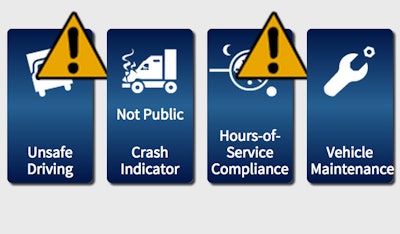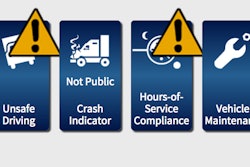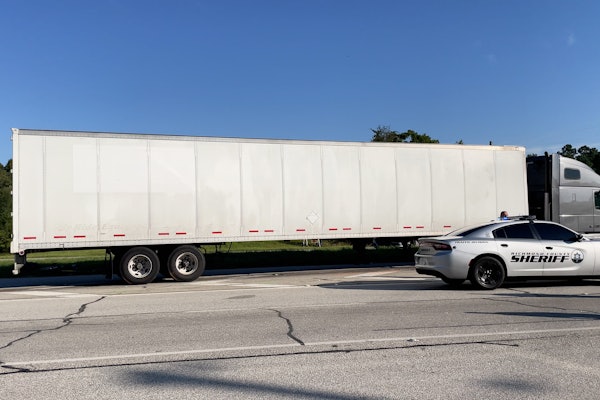
The comment period for the Federal Motor Carrier Safety Administration’s proposed changes to the Compliance, Safety, Accountability program closed last week, and several major trucking organizations and companies weighed in.
The FMCSA is proposing to take yet another BASIC score public, one of several changes it’s proposing for the Safety Measurement System, which the agency uses to measure the safety of motor carriers and prioritize carriers for intervention actions.
In addition to taking the hazmat BASIC public, the agency wants to lower the interventional threshold of the vehicle maintenance BASIC to 75 percent from its current 80 percent, thus targeting more carriers, and raise the intervention threshold of the controlled substances BASIC to 90 percent from its current 80 percent, thus targeting fewer carriers.
Here’s a look at some of the comments that were submitted:
American Trucking Associations: ATA says FMCSA is missing an opportunity to improve safety with the proposed rule.
“After having a year to consider the recommendation from the National Transportation Safety Board-requested Independent Review Team to distinguish form and manner violations from those that cause crashes, FMCSA appears to have dismissed it out of hand,” said Rob Abbott, ATA Vice President of Safety Policy. “We find this very troubling because the agency is missing an opportunity to improve safety by placing more focus on high-risk carriers.”
ATA also criticized FMCSA for making the hazmat BASIC public while the industry is pushing to have less publicity of the program.
“ATA has repeatedly called on the agency to remove the scores CSA produces from public view while it fixes these serious issues,” Graves said. “Ironically, while Congress is putting final touches on legislation to require that FMCSA take this step, the agency is only proposing superficial changes to the system and actually suggests making more flawed data public.”
Owner-Operator Independent Drivers Association: OODIA took a similar approach as ATA, stating that “none of the proposed changes resolve the fundamental problems with the system that cause it to damage good carriers’ safety reputations and not accurately identify the worst motor carriers.”
“OOIDA encourages the agency to scrap the current system, pursue a more aggressive effort to identify the real factors that cause crashes, and use that information to create an objective safety standard that is accurate and reliable. Once it creates such a system, it should devise more effective strategies to intervene with motor carriers who are truly at a higher risk for crashes.”
FedEx: FedEx states it’s concerned that the flaws in the CSA program make carriers’ scores unreliable.
“FedEx’s top priority is safety and that includes compliance with the FMCSA’s safety regulations. While FedEx supports efforts by the FMCSA to improve the SMS, and thus the CSA program, FedEx is concerned that the totality of flaws in the CSA program, not just those problems identified and addressed in this Notice, collectively make motor carriers’ CSA scores unreliable and not reflective of crash risk.”
Con-way: Con-way said it supports “adjustments to the intervention thresholds to better prioritize carriers for intervention and roadside inspections to determine if the carrier maintains appropriate safety programs to prevent crashes.”
The company added, though, that it doesn’t support “public display of information that does not reflect an individual carrier’s safety performance. FMCSA should take great care to use data and violations that have a direct relationship to crashes. A violation that statistically but indirectly relates to crashes does not mean the carrier is unsafe, and that data should not be displayed to the public and should be used to a much lesser extent to focus enforcement resources if at all.”











